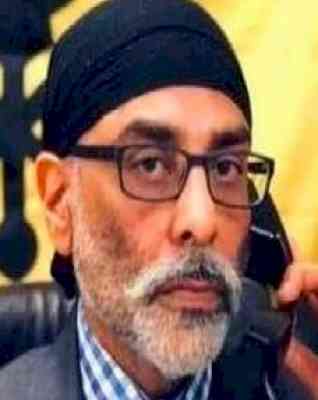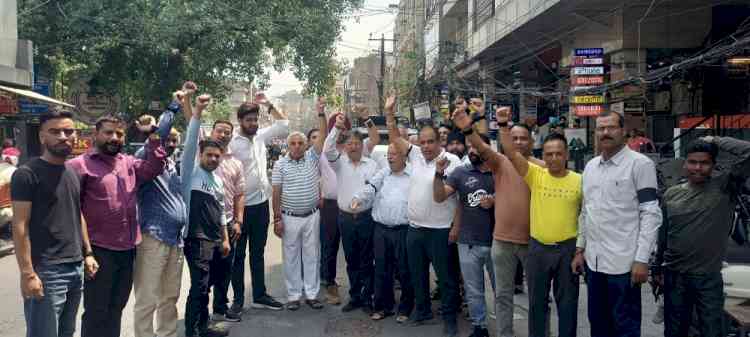Law graduate Pannun has Chandigarh connect
On the outer wall of banned terrorist organisation Sikhs For Justice (SFJ) founder Gurpatwant Singh Pannun's house in an upscale Chandigarh locality, a proclamation notice issued by an National Investigation Agency (NIA) court in Mohali has also been pasted.

Chandigarh, Nov 15 (IANS) On the outer wall of banned terrorist organisation Sikhs For Justice (SFJ) founder Gurpatwant Singh Pannun's house in an upscale Chandigarh locality, a proclamation notice issued by an National Investigation Agency (NIA) court in Mohali has also been pasted.
A law graduate from Panjab University, Pannun, who faces charges under the Unlawful Activities (Prevention) Act, is currently residing in Oakville on the outskirts Canada's Toronto.
Originally from Khankot village on the outskirts of the holy city of Amritsar, Pannun's father, Mahinder Singh, was a former employee with the Punjab State Agricultural Marketing Board.
His family had migrated from Pakistan to Khankot during the partition in 1947. Pannun is little known in his village, where he owns property worth crores, including agriculture land. He rarely visited the village.
Pannun, an attorney at law in the US and Canada who has been offering employment abroad, besides a cash incentives for hoisting the Khalistani flag on public buildings, is one of the founders of SFJ, which claims to be "an international advocacy and human rights group".
Pannun, who has asked the youth in Punjab to hoist the Khalistani flag on Independence Day, has been actively propagating and funding the secessionist Khalistan agenda abroad.
Just ahead of Independence Day this year, Congress leaders put up the national flag at his Chandigarh residence.
Carrying tricolours, Congress leader Gursimran Singh Mand from Ludhiana along with his supporters assembled outside Pannun's house and raised slogans. They then put up a flag at the main gate of the house as part of the 'Har Ghar Tiranga Abhiyan'.
The organisation came to limelight in 2013 when it get summons from a US court in connection with the counter-insurgency operations in Punjab in the 1990s against then Indian Prime Minister Manmohan Singh ahead of his arrival in Washington for a summit meeting with then US President Barack Obama.
The SFJ had earlier secured similar summons for Congress leader Sonia Gandhi.
In August 2018, SFJ members organised a large pro-Khalistan rally in London's Trafalgar Square and announced their campaign, "Referendum 2020."
In 2019, the Centre had banned SFJ on the ground of secessionism. The group has been trying to build a campaign for secession of Punjab.
It has designated Pannun as individual terrorist and listed his name in the Fourth Schedule of the Unlawful Activities (Prevention) Act (UAPA), 1967.
The Centre in 2020 ordered attachment of Pannun's agricultural land at Khankot and Sultanwind area of Amritsar under Section 51-A of the UAPA Act.
According to a reply in the Lok Sabha, the Central government said an first information report (FIR) dated August 14, 2020, under several sections of the Indian Penal Code (IPC), the Prevention of Insults to National Honours Act, the Information Technology Act and UAPA Act was registered against Pannun in Moga, Punjab, in connection with the Khalistani flag hoisting case atop the Deputy Commissioner's office.
The case was transferred subsequently to the NIA. Pannun has been declared as an absconding accused. A lookout circular and non-bailable warrant of arrest have been issued against him.
In October, Interpol rejected India's second request to issue a Red Corner Notice against Pannun as it is learnt that Indian authorities failed to provide sufficient information to support their case.
Interpol has also raised concerns over the "misuse" of UAPA Act to target minority groups and rights activists without "respecting" their right to due process and a fair trial.
However, Interpol clarified that it works in accordance with its constitution of not intervening in matters of political and religious significance.


 IANS
IANS 










